Nets and Marine Equipment
Antifouling coating for nets and marine equipment
One of the significant challenges faced by maritime industries is the relentless growth of fouling organisms on nets and other marine equipment, leading to increased fuel consumption, higher maintenance costs, and the release of harmful chemicals into the sea.
Hripa's BaSiliCoat was developed to address those issues and transform the way we protect our seas.
Tests 2020-2021
- Tests were done at Arctic Fish Sea Farm
- In July several 1 sq. m net frames were put in sea
- Also a set of fiberglass and metal plates were once again tested
- Checked in Aug. and Oct. - after mussle-settling time
- Results are very promising as seen in following images
Plates in the image to the left were treated with Hripa BaSiliCoat (except lower right corner), while the plates in the image to the right were untreated.
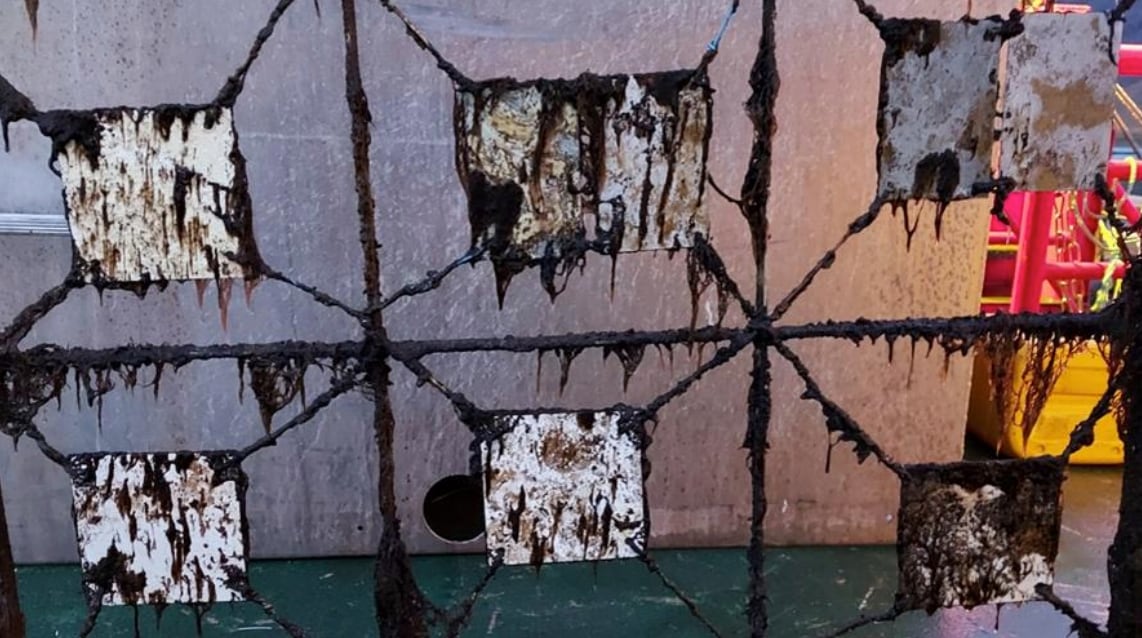
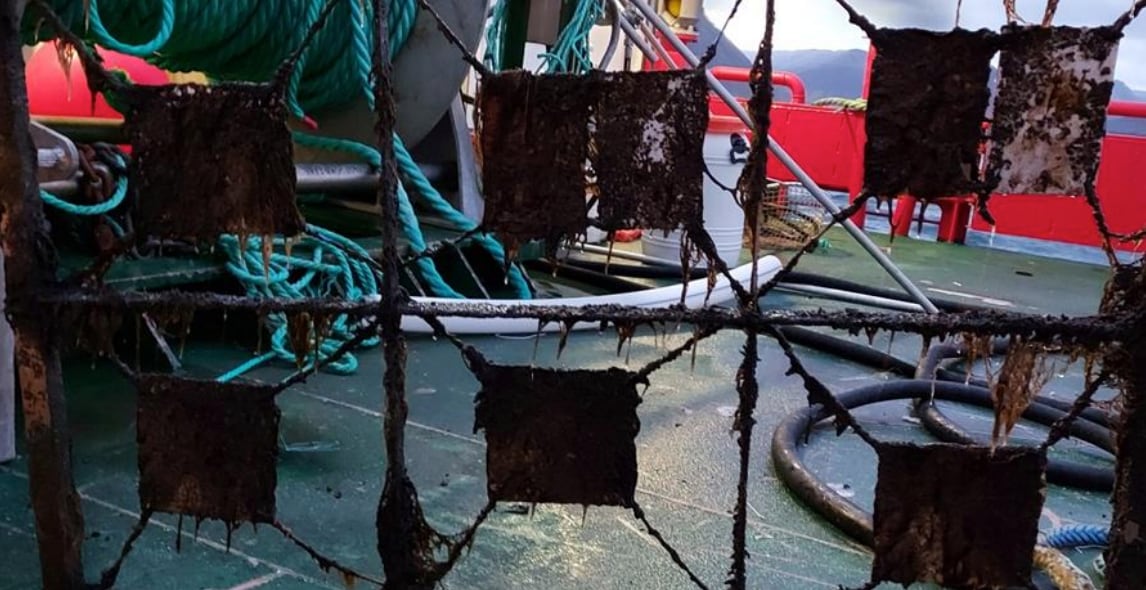
Similar results could be seen on nets. Treated net on the left, and untreated net on the right.
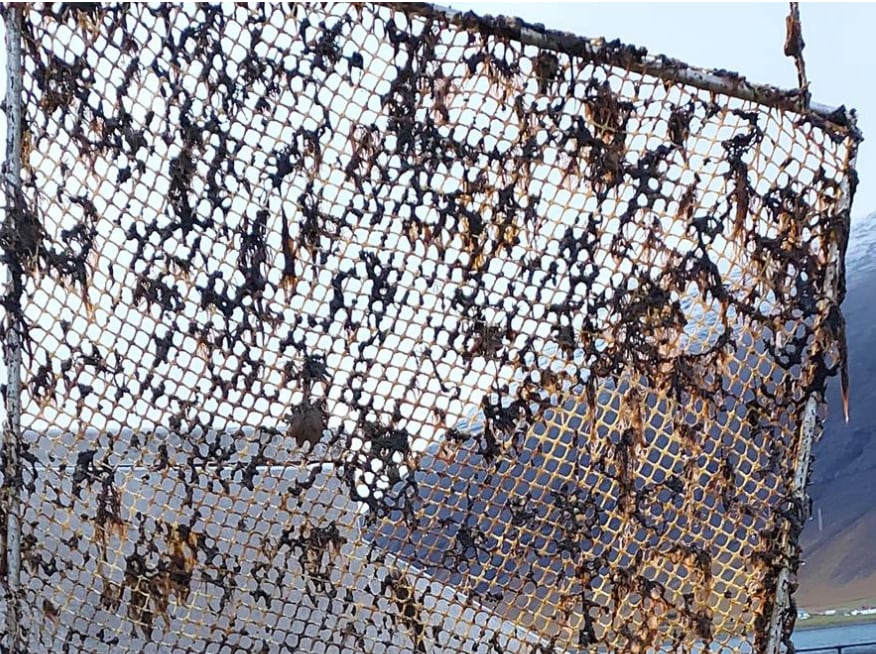
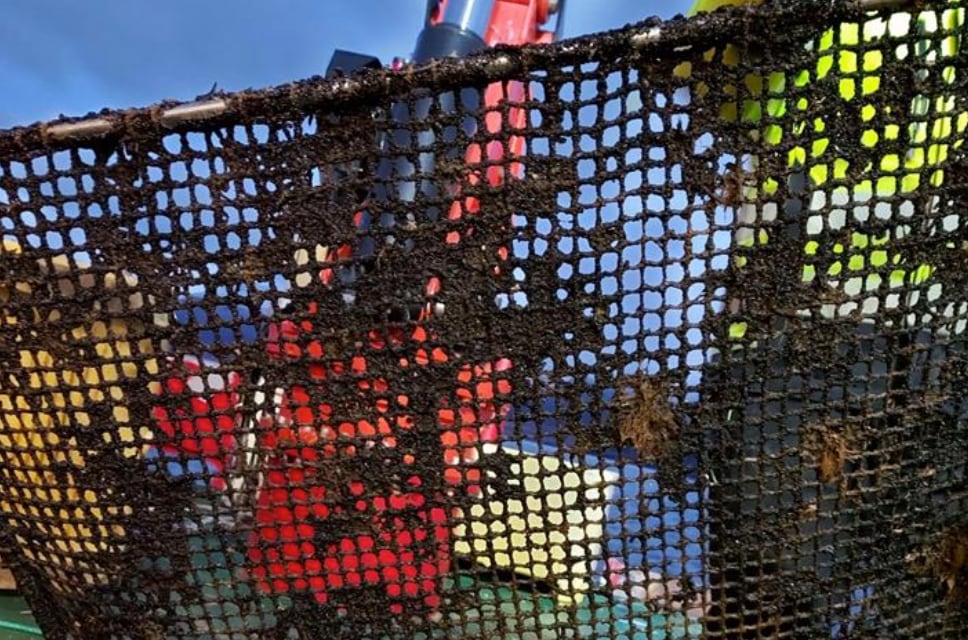
Tests 2019-2020
- Test on cage nets were done at Arctic Fish aquaculture company in Dýrfjörður NW-Iceland
- Start in June with small fiberglass plates and cage nets
- In July no mussles or barnacles had settled
- In October substantial growth was on the frames and ropes
- Some growth on the nets but little on fiberglass plates
- In May 2020 nets and plates were covered by algae
- Also mussles but were firmly attached - see picture
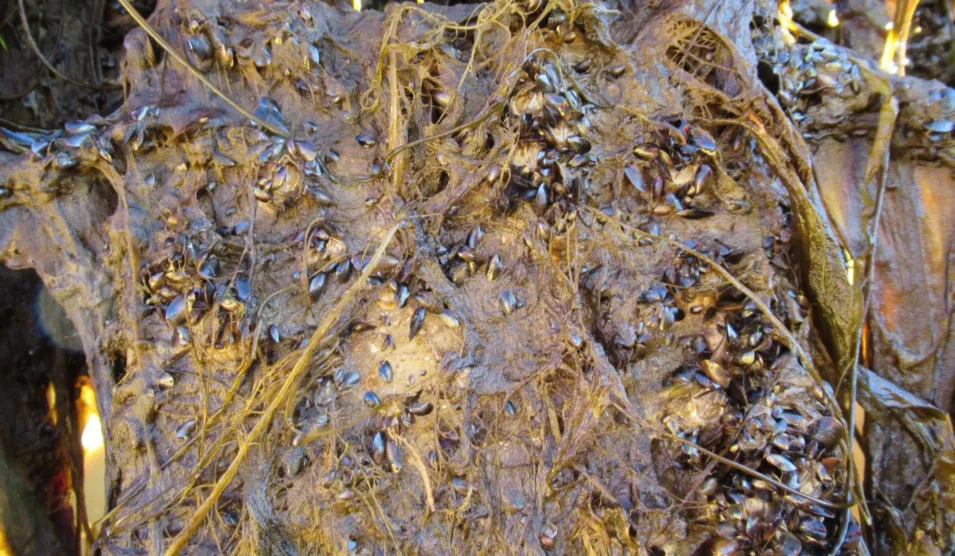
Biosafety tests on salmon
- The Iceland Marine Research Institute tested effects of BaSiliCoat® on salmon growth
- About 175 fish with average start weight of 1.35 kg were divided in four cages
- Two each with treated and untreated nets
- Fish was weighed after 75 days at 10°C
- The weight gain was 66.5% in untreated cages
- The weight gain was 65.5% in treated cages
- Conclusion: BaSiliCoat® treatment has no effect on survival and growth of salmon
